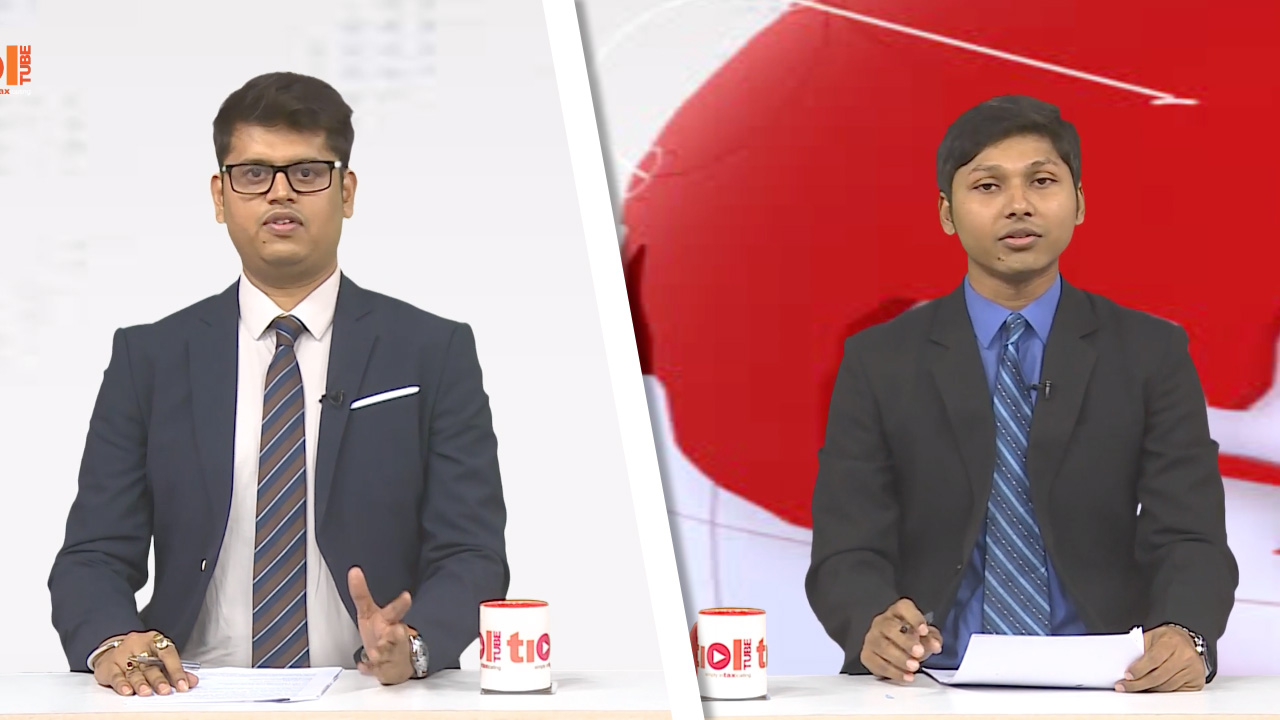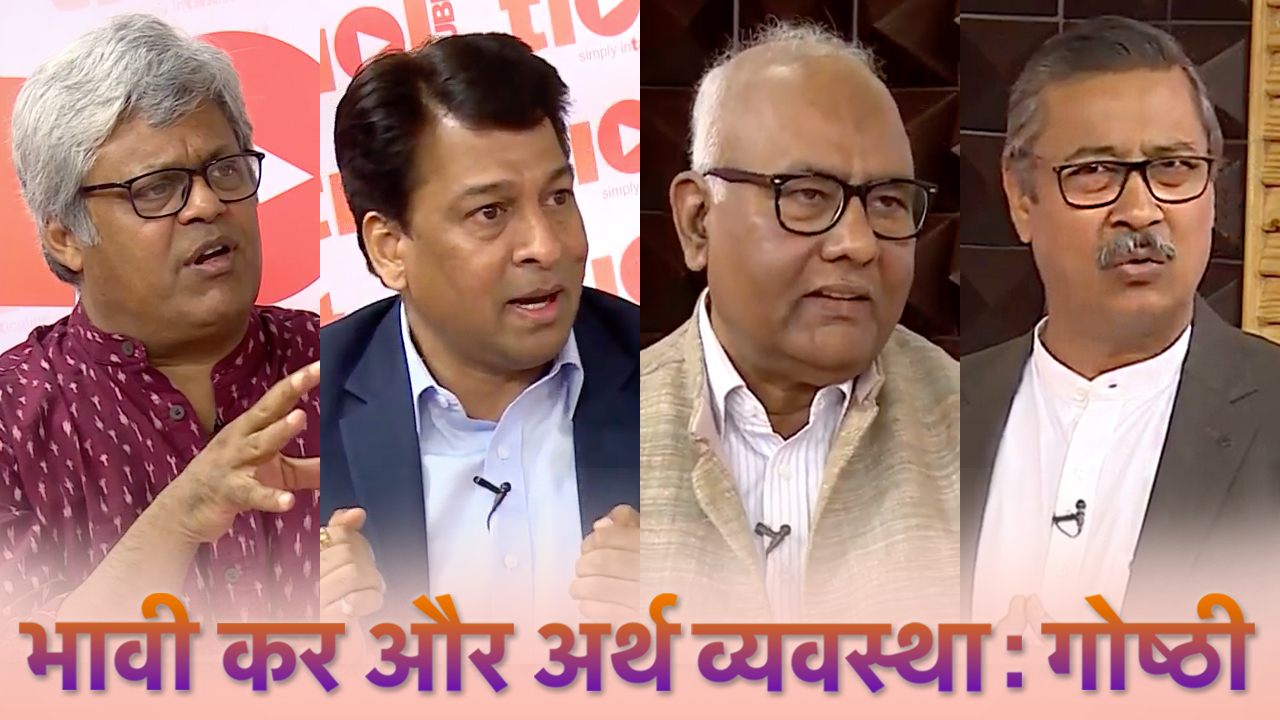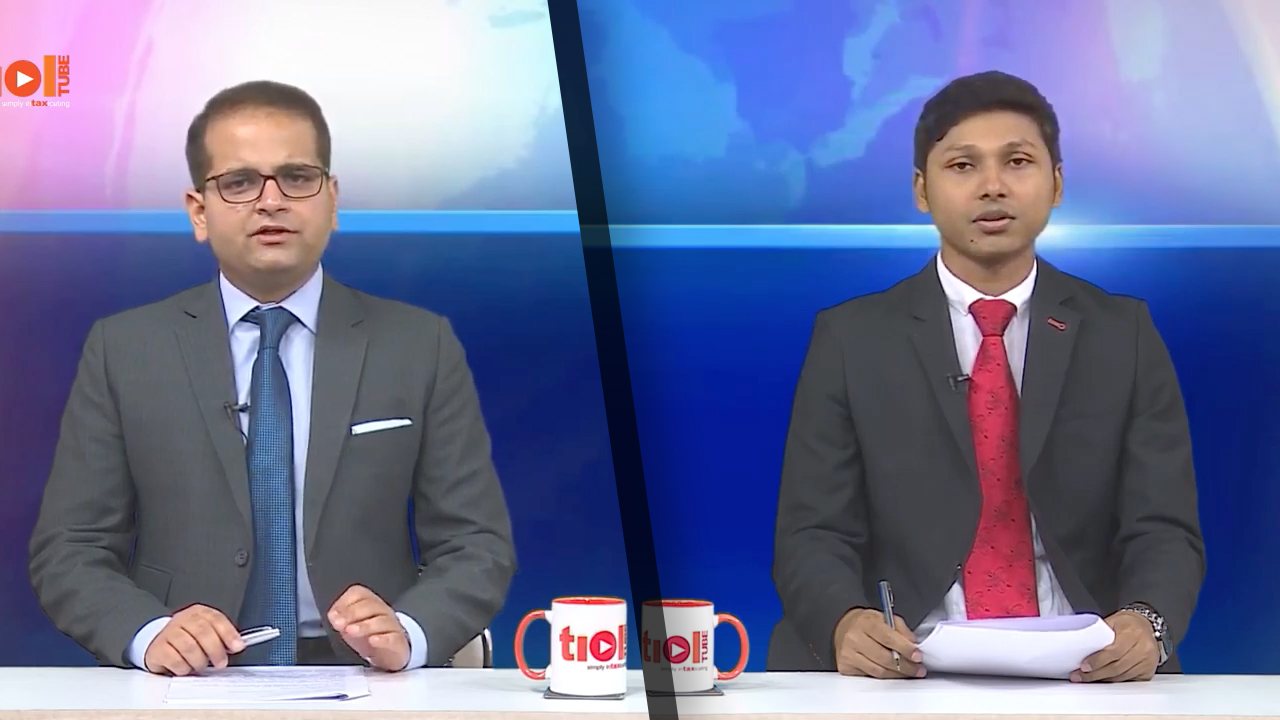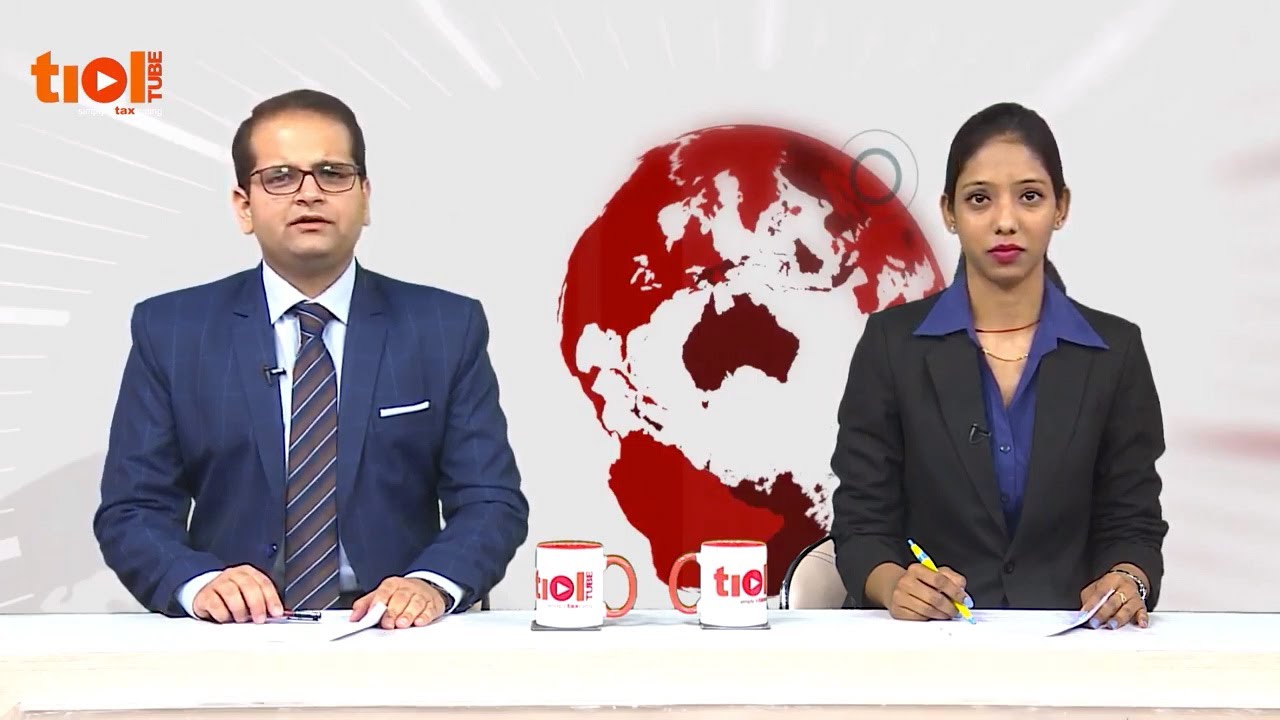|
SERVICE TAX
2019-TIOL-931-HC-MAD-ST
Coral Crest Builders Vs CCE
ST - Penalty - The a was under bona fide belief that the nature of service rendered by them will not fall under the 'service tax' head and as soon as they came to know that they are rendering service tax, they registered themselves with the Department and paid tax and therefore, the respondent should not have imposed penalty - Unfortunately, the factual scenario appears to stare against assessee in the sense that there is record to show that the assessee has collected service tax from its client/customer, but failed to remit the same with Department - Thus, the plea of innocence and bona fides should necessarily fail - There is no error in the order passed by Tribunal and no question of law, much less substantial questions of law arise for consideration in this appeal: HC
- Appeal dismissed: MADRAS HIGH COURT
2019-TIOL-1198-CESTAT-BANG
See For You Satellite Communication Vs CCE
ST - Shri Prajesh. A and 20 others have joined hands together and formed a partnership firm under the name and style of "See for Your Satellite Communications" from 1.4.2005 for providing Multi System Operator (MSO) service - The MSO service was liable to service tax from 1.4.2005 - A SCN was issued to assessee alleging that they have rendered MSO service during period April 2005 to July 2005 and have not paid service tax - The assessee have contended that they were not registered as a firm during relevant period - The registration has come into effect only from 25.7.2006 - However, they have also claimed that they have obtained a registration for service tax on 27.10.2005 in the name of the firm - The original adjudicating authority has given a clear finding that they have obtained a registration for providing MSO/cable operator service - Shri Prajesh. A has signed as Managing Partner and stated the form of organisation to be a company - The original authority has also held that with effect from 10.9.2004 as per the explanation 'Company' means anybody corporate and includes a firm or other association of individuals - Therefore, the averments made on this basis have no relevance - The assessees have contended that the amount discussed in SCN is the sum of individual collections of cable operators and has no bearing with the service provided by assessee - It is not understood as to why the Managing Partner has accepted the same to belong to them - Shri Prajesh. A has signed the register record from the office of M/s. World Vision TV Network - Moreover, Shri Prajesh. A has accepted the statement that the total value of service provided by them was Rs.15,50,000/- from 1.4.2005 to 30.6.2005 and Rs.5,25,000/- for the month of July 2005 - He also accepted that the total liability to service tax was Rs.2,11,650/- and the same will be paid by them - He also submitted a register showing connections and collections maintained by them - The assessee has not made a case for themselves and in view of contradictions in assessee's submissions, no reason found to conclude that assessee is not chargeable to service tax - The statement was never retracted and the assessees have only averred that it is not supported by other evidence - However, penalty cannot be imposed under Section 76 and 78 simultaneously - Therefore, the penalty imposed under Section 76 is set aside: CESTAT
- Appeal partly allowed : BANGALORE CESTAT
CENTRAL EXCISE
2019-TIOL-1195-CESTAT-BANG
India Cane Power Ltd Vs CCT
CX - Assessee is engaged in manufacture and clearance of sugar and molasses on payment of Central Excise duty - They are also engaged in manufacture of electricity, which is used captively for manufacture of excisable goods and the excess/surplus quantity of electricity is sold to outside power agencies for a consideration without payment of duty, as no rate of duty has been prescribed in CETA, 1985 - The department had demanded an amount equal to 6% on the amount of Rs.4,56,06,012/- being the value of electricity sold to outside agencies i.e., power distribution companies during the period March 2015 under Rule 6 of CCR, 2004 - The issue is no more res integra and has been settled by decision of Allahabad High Court in case of Gularia Chini Mills 2013-TIOL-568-HC-ALL-CX which has been approved by Supreme Court in case of M/s. DSCL Sugar Ltd. 2015-TIOL-240-SC-CX - Further, Division Bench of Tribunal in case of Jakarya Sugars Ltd. 2018-TIOL-1845-CESTAT-MUM has also considered the same issue and after relying upon the judgment of Allahabad High Court in case of Gularia Chini Mills has held that in the generation of electricity from bagasse, no other input or input service is used and therefore, the electrical energy is neither excisable under Section 2(d) of CEA, 1944 nor exempted goods and hence, Rule 6 is not applicable - By following the ratios of said decisions, the demand of 6% of value of electricity sold to various companies is not sustainable in law: CESTAT
- Appeal allowed : BANGALORE CESTAT
2019-TIOL-1194-CESTAT-DEL
Hindustan Zinc Ltd Vs CCE & ST
CX - The assessee is engaged in manufacture of lead and zinc concentrates, zinc cathode and sulfuric acid - During audit, department noticed that the assessee had availed cenvat credit on cement used in mines for filling pits after extraction of ore - The same is denied by department to be termed as input for manufacture of the final product - Resultantly the respective cenvat credits have been disallowed and have been proposed to be recovered respectively for such an amount and for such a period vide such SCNs as have been detailed in the charts - The moot question to be decided is as to whether the cement used by assessee who were asked to extract ore from the proposed ore block but only after conducting stopping operations of the said ore blocks, can be called as input - The department has relied upon 2k(iv) F clause of definition that goods which have no relationship whatsoever with the manufacture of a final product are not the input - Therefore, it becomes necessary to understand as to whether the cement herein has any relation with the manufacture of final product or not - Perusal of record shows that there has been a permission under the aforesaid regulation in favour of assessee vide which the assessee was permitted to conduct stopping operations of the ore block by making use of impugned cement and the method of extraction shall be by VRM Stoping method post filled by mill failing mixed with cement in the ratio as prescribed therein - The permission specifically recites that extraction of ore from the proposed area shall be commenced only after proper settlement and consolidation of the fill of stopped out ore block, immediately below the proposed ore block - Perusal of these clauses in the permission by the mines department in favour of assessee makes it abundantly clear that filling of the open ore pits with cement was a mandatory pre-requisite for assessee to extract ore - It was a statutory requirement as well in view of the regulation 107 (3) - Thus, the cement used herein is a good which has relation, though indirectly, with the extraction of ore thus it qualifies for audit under Rule 2(k), prevailing during the relevant period - Without filling of the ore pits the assessee was statutorily, not in position to extract the ore, i.e. the final product thus the use of cement was very much in relation to the manufacture which was extraction of ore in the impugned cases - Therefore, assessee is entitled to treat the same as input: CESTAT
- Appeal allowed : DELHI CESTAT
CUSTOMS
2019-TIOL-935-HC-DEL-CUS + Case Story
DRI Vs Prk Diamonds Pvt Ltd
Cus - During the relevant period, the DRI intercepted a car from which 8 Kgs of Gold was recovered - The car was registered in the name of the respondent-company - The DRI proceeded to arrest the director of the firm along with another person, for carrying smuggled Gold - Thereafter, the Chief Metropolitan Magistrate directed that the car be released - The same order also directed the release of another vehicle which allegedly was utilized for carrying smuggled Gold to one person, who had been arrested along with two others for alleged offences punishable u/s 132 & 135 of the Customs Act in connection with the recovery of gold bars weighing 5 Kgs - Both vehicles were allowed to be released on superdari by following the decision of this court in Manjeet Singh v. State, in Crl.M.C. No. 4485/2013 and Crl. M.A. No. 16055/2013 - The CMM also observed that the vehicles if not released would deteriorate with time & also that if not released, the upkeep of the vehicles would drain resources & space - Hence it was observed that presumption of inconvenience had to be given due weightage & the accused person ought not to be penalized indirectly - Hence the present appeals by the DRI.
Held - It is apparent that the Customs Act serves as a complete code in itself in relation to search, seizure, confiscation and release of goods seized in alleged violation of the Act - The Act also provides for the release of such goods - Though after confiscation, the subject goods vest with the Central Government as per Section 126(1) of the Act, coupled with the factum that Section 127 of the Act providing that any confiscation or penalty awarded by a Customs officer would not prevent the infliction of any punishment to which the person affected is liable under under the provisions of Chapter XVI of the Act and under any other law - This makes it apparent that search, seizure, confiscation & adjudication in relation to confiscation is de hors the infliction of any punishment imposable under the Customs Act - It is also significant to note that the Act also provides an option of appeal against the adjudication order as well as an appellate Tribunal - Apparently, at the stage of investigation being conducted by the Customs officers, the provisions of Section 451 of CrPC are inapplicable - Besides in the case of State of Madhya Pradesh vs Uday Singh the Apex Court reiterated that a criminal prosecution and a proceeding for confiscation are distinct and are two parallel proceedings and that criminal prosecution is not an alternate to confiscation proceedings, and that the mere fact that there was an acquittal in a criminal trial before a Magistrate due to paucity of evidence would not necessary result in nullifying the order of confiscation passed by an authorized officer - Moreover, the reliance placed by the respondents on the decision in Manjeet Singh v. State as well as that of the Apex Court in Sunderbhai Ambalal Desai & Ors. v. State of Gujarat is misplaced - This is because both pertain to cases where the provisions of Section 451 of CrPC was applicable, whereas this is not the case in the present matter - This is further because the seizure of the two vehicles in these cases was not subject matter of any inquiry or trial before the Trial Court when the common order was passed - Thus, despite non-existence of a specific bar to the jurisdiction of courts in the Customs Act to the release of the seized goods during investigation by the Customs authority, the Trial Court could not have invoked the provisions of Section 451 of the CrPC for release of the vehicles - Hence the orders passed by the CMM are quashed - It is open for the respondents to seek the requisite remedy before the Customs officer concerned: HC (Para 1,42-46,51,54,55)
- Revenue's appeals allowed: DELHI HIGH COURT
2019-TIOL-934-HC-MAD-CUS
CC Vs City Office Equipment
Cus - Import of Old and Used Digital Multifunction Print and Copying Machines (MPCMs) - appellant/Department stated that the goods imported by the respondent can be permitted for clearance only after production of authorisation/import licence issued by the DGFT authorities or any other notification or clarification issued by the DGFT and they have to fulfil the other two conditions, viz., BIS certificate and compliance of procedures as per the provisions of Hazardous and other Wastes (Management & Transboundary Movement) Rules, 2016 and E-Waste Management Rules, 2016 - However, respondent did not produce the authorization/import licence issued by the DGFT authorities and BIS certificate as required under the Electronics and Information Technology Goods (Requirements for Compulsory Registration) Order 2012, dated 07.09.2012, and subsequent orders dated issued by the Ministry of Electronics and Information Technology (MeitY) - stand taken by the appellant/Department was that all the three mandatory requirements under the relevant Act/Rules have to be independently fulfilled for clearance of the second hand machinery - Faced with this situation, the respondent/writ petitioner sought permission to warehouse the goods in terms of Section 49 of the Customs Act, 1962 - respondent after having warehoused the goods, submitted representation to release the goods provisionally against PD bond and cash deposit as per the percentage followed by the Custom House - Single Bench by the impugned order directed the appellants to release the consignments of MPCMs in cases where there is no challenge to the policy guidelines, upon the respondents furnishing a bond for 90% of the enhanced valuation of the goods, and security for the remaining 10% within one week from the date of furnishing of the aforesaid security - correctness of this direction is being challenged by Department.
Held: Respondent does not dispute the fact that they do not have authorisation/import licence, but the fact remains that the respondent/writ petitioner had applied for such licence and in most of the cases, the licence so requested has been rejected by MeitY - In all fairness, the respondent/writ petitioner ought to have impleaded the authorities of the said two Departments, since there is a restriction for import of the subject goods and it is the authorities of DGFT and MeitY who would have a say in the matter, as the Customs Department is only an implementing authority - respondent/writ petitioner was fully aware of the fact and that an import licence and appropriate BIS clearance certificate under the relevant order is a pre-requisite - In such a factual position, Court would be fully justified in holding that the appellant can insist upon orders for provisional release of the imported goods by raising a plea that the provisions of the Foreign Trade Policy and the various notifications and orders are not sustainable or inapplicable to the goods imported by them - pre-requisite for Section 110A to be attracted is seizure of the goods under Section 110 and in terms of sub-Section (1) of Section 110, if the proper officer has reason to believe that any goods are liable to confiscation under the Customs Act, he may seize such goods - Admittedly, till date, the goods have not been seized and which factual position is not disputed - in the absence of seizure, the provision of Section 110A would be inapplicable - none of the provisions of the Foreign Trade Policy or the notification/orders were challenged by the respondents before the Writ Court and, therefore, the respondent cannot resile from complying with the conditions which have been imposed under the notification and orders which have been issued in public interest - stage is yet to come for arriving at a valuation as the case is yet to be adjudicated and even much prior to that, the respondent have rushed to the High Court and filed writ petitions, after, on their own volition, warehoused the goods in terms of Section 49 of the Act - In the result, the writ appeals are allowed and the order passed in the writ petitions is set aside - facts clearly disclose that the respondents would not be in a position to either produce authorisation or licence from the authorities of DGFT, nor they would be able to produce any certificate as required under the orders dated 07.09.2012, 25.06.2013 and 07.11.2014 issued by MeitY - appellants to commence adjudication process and show cause notice be issued to the respondents within a period of four weeks: High Court [para 11, 12, 27, 28, 29]
- Writ appeals allowed: MADRAS HIGH COURT
2019-TIOL-930-HC-MAD-CUS
HS Trading Company Vs CC
Cus - The petitioner sought a Mandamus for release of "BLACK MAPTE, Beans of species Vigna mungo (L.) Hepper or Vigna radiata (L.) Wilczek Beans of the species Vigna mungo (L.) Hepper or vigna radiata (L.) Wilczek (Urad Dal/Moong Dal" imported by them and further direct the respondents to issue a "Detention Certificate" for waiver of Demurrage and Container Detention Charges in terms of Regulation 6(1) (I) of Handling of Cargo in Customs Areas Regulations, 2009 - The identical issue as arising in Writ Petition has been considered in the case of M/s.Royal Impex 2019-TIOL-596-HC-MAD-CUS - The aforesaid order is applicable to the present case - The petitioner will remit the entire duty component of consignments imported by them in cases where such duty is leviable as per paragraph 15(iii) along with a bank guarantee for the 10% of the invoice value - In cases where the duty impact is neutral, the petitioner shall furnish a bank guarantee for the 10% of the invoice value - Upon satisfaction of the aforesaid conditions, the consignments shall be released forthwith - In the light of Rule 6(l) of Handling of Cargo in Customs Areas Regulations, 2009, there shall be a waiver of demurrage charges: HC
- Writ petition disposed of: MADRAS HIGH COURT
2019-TIOL-1197-CESTAT-MAD
CC Vs Ingram Micro India Ltd
Cus - The ROM application is filed by assessee seeking rectification of errors in the final order passed by Tribunal dated 16.11.2018 - It is seen that the Tribunal in para 6 as well as in para 12 has noted that the appeal filed by Fortune Marketing Ltd. before the Apex Court was dismissed as withdrawn on 13.1.2017 - On perusal of the order produced by assessee, Tribunal is convinced that this is an error apparent on the face of record, therefore same is to be rectified - The impugned order is modified to the extent of deleting the words "as withdrawn" in para 6 and 12 - The last sentence in para 6 is consequently deleted: CESTAT
- ROM application allowed : CHENNAI CESTAT
2019-TIOL-1196-CESTAT-BANG
Kamal Kishore Parekh Vs CC
Cus - The appellants have filed these appeals directed against the common impugned order whereby the Commissioner has imposed penalties on the firm i.e. Riddhi Enterprises and its partner Sh. Kamal Kishore Parekh and also penalties on Sh. Ashok P Maniyar, Proprietor, M/s. D J Impex under Section 112(a), Section 114 (iii) & Section 114AA of Customs Act, 1962 - Since the appellant, Sh. Ashok P Muniyar has died during the pendency of appeal, therefore in view of judgment of Supreme Court in case of Shabina Abraham 2015-TIOL-159-SC-CX, penalty proceedings against deceased stand abated - As far as various penalties imposed under Section 112(a), Section 114(iii) & Section 114AA all under the Customs Act, 1962 on the appellant, M/s. Riddhi Enterprises and its partner, Sh. Kamal Kishore Parekh is concerned, the main notice who has mis-used the EPCG License on the basis of exports made by assessee and has also obtained EODC certificate from the DGFT, they have gone to the Settlement Commission and have settled the matter before the Settlement Commission and have paid the liability along with interest - The Original Authority has imposed the penalty on partner as well as Partnership firm on the vey same transaction which is not permitted under law - The said sections have also not been brought out specifically in the impugned order - In view of all these infirmities, this case needs is remanded back to the Original Authority to pass a denovo order - Consequently, the impugned order is set aside: CESTAT
- Matter remanded : BANGALORE CESTAT |
|









